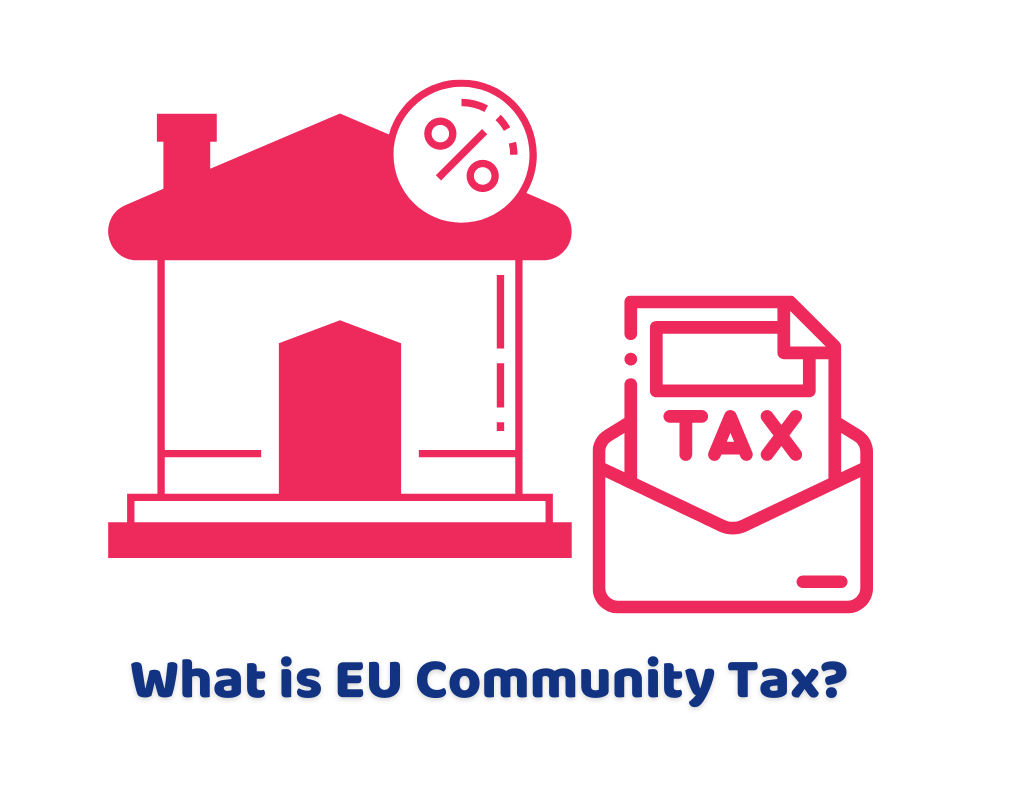The EU Community Tax is a form of VAT that is collected on goods and services sold within the EU. This tax supports initiatives such as research and development, infrastructure projects, and regional development.
However, the EU Community Tax has its own set of risks and limitations that businesses need to be aware of. In this discussion, we will explore the EU Community Tax system in the UK, its purpose, benefits, and potential drawbacks.
AccountingFirms can assist you in managing your business and accounting problems as well as avail maximum tax relief possible.
What is EU Community Tax in the UK?
All businesses that deal with the sale of goods and services within the EU are required to register for EU community tax and submit VAT returns to the relevant EU authorities. The rates of VAT and the goods and services subject to VAT can vary depending on the country. This is why it is important to understand the rules and regulations in each country to avoid any penalties or fines.
However, there are some benefits to the EU community tax. It provides easy access to the single market, making it easier for businesses to buy and sell goods and services across the EU. All EU member states charge the same rate of taxation regardless of the country in which the goods or services are consumed.
Importance of EU Community Tax
The importance of EU community tax in the UK cannot be overstated. Including research, infrastructure development, and regional development projects. With the UK being a leading member of the EU, it’s essential to understand the rules and regulations of EU community tax. This not only boosts trade between EU member states but also helps to stimulate economic growth and create jobs.
Who is Eligible for EU Community Tax?
In the UK, businesses that trade with EU member states are eligible for EU Community Tax. If your annual turnover is below this threshold, you may not need to charge VAT on your goods or services. The return should include all VAT receipts and expenses related to the business. The deadline for submitting VAT returns in the UK is 20 days after the end of a quarterly period.
How to Claim EU Community Tax?
To claim EU community tax in the UK, there are several steps that businesses need to follow:
1. Register for VAT:
Businesses that are not already registered for VAT need to register with HMRC. Once the registration process is complete, businesses will receive a VAT number.
2. Keep Records:
Businesses need to keep accurate records of all transactions. Including sales, purchases, and VAT paid or due.
3. Prepare VAT Returns:
VAT returns need to be submitted to HMRC regularly.
4. Pay VAT:
Businesses need to calculate the amount of VAT they owe based on their sales and purchases. The VAT amount needs to be paid to HMRC by the deadline, which is usually 20 days after the end of the taxable quarter.
Risks and Limitations of EU Community Tax
Like any tax system, the EU community tax system in the UK has its risks and limitations. Here are a few examples:
1. Complexity:
VAT law can be complex, and businesses may struggle to navigate the system if they are not familiar with the rules and regulations.
2. Human Error:
Mistakes can occur when businesses are preparing their VAT returns, which may result in underpayments or overpayments of tax.
4. Compliance Burden:
Keeping accurate records and preparing VAT returns can be time-consuming and burdensome for businesses, particularly for small businesses with limited resources.
5. Fraud Potential:
VAT fraud is a major concern for the UK government, and businesses are required to take precautions to prevent fraudulent activity.
6. International Trade:
The complexity of VAT laws in the EU can make international trade more challenging for businesses.
Conclusion
In conclusion, the EU community tax is a VAT levied on the value added to goods and services within the EU. The EU Community tax is one of the main sources of revenue for the EU budget. Which is used to support initiatives within the EU. Including research, infrastructure development and regional development projects.
However, there are some risks and limitations associated with the EU Community tax in the UK. These include complexity, human error, penalties, interest charges, compliance burden, fraud potential, and international trade challenges. This can be achieved by seeking professional advice and seeking expert guidance on compliance and VAT law.
Get in touch with our young, clever, and tech-driven professionals if you want to choose the solution to tax burden or accounting problems in the UK for your income. We will ensure to offer the best services.
Disclaimer: The information provided on AccountingFirms.co.uk is for informational purposes only and should not be considered as financial advice. Always consult with a professional accountant to ensure compliance with UK laws and regulations.

